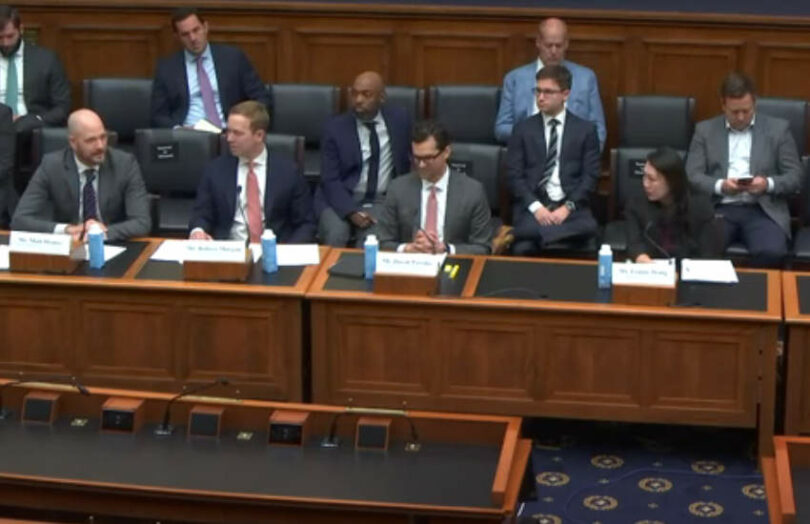Yesterday there was a Congressional hearing on stablecoins where the differences between the Republican stablecoin Bill and the Democrat one were highlighted. Significant common ground exists, including strong reserve requirements, disclosures, audits and consumer protections. The biggest bone of contention is around the role of state regulators.
However, during the hearing of the Financial Services Subcommittee on Digital Assets, Financial Technology and Inclusion, a sensible path was proposed: to have a tiered approach as Singapore and the EU have done. Hence larger stablecoin issuers would be subject to direct Federal oversight, while smaller stablecoins could remain state regulated.
The role of state regulators
The primary Democrat concern is that state regulation could result in a race to the bottom so that fraudsters will pick a state with the most lax audit requirements. Delicia Reynold Hands from Consumer Reports argued that “in the same way there is a role for Federal regulators to approve state-chartered banks (that are members of the Fed), there has to be a role for the Fed to review applications and reject them if they don’t have certain requirements.”
Venture capitalist Matt Homer who previously worked for the NY Department of Financial Services, argued that with the Republican Bill, the Fed would still be able to access the books of state chartered stablecoin issuers and could step in if they thought they were not properly regulated. It would also be able to issue enforcement actions.
He was the person who observed that neither of the Bills provide tiered regulations based on the scale of a stablecoin and he proposed a large stablecoin issuer could be Federally regulated.
Congressman Flood particularly favored supporting state chartered stablecoin issuers, arguing that the states act as ‘laboratories’ and encourage more innovation.
Under the Democrat Bill, “The Federal Reserve would be in charge of processing applications, regulation, examination, and enforcement. That’s the whole ballgame,” said Congressman Flood.
“The Federal Reserve would be responsible for all the nuts and bolts of regulating state issuers and would delegate some of their responsibilities (to state) only if they so choose. To be frank, that’s just not a state pathway in any meaningful sense.”
Democrat Congressman Torres observed that if states can regulate fractionally reserved banks, there seems no reason why they cannot oversee stablecoin issuers that are 100% backed by reserves.
Other stablecoin issues
Custody is treated quite differently in the two bills. The Republican Bill seemed to drop the consumer protection requirement that custody of stablecoins should always be segregated from the assets of the issuer, exchange or custodian.
That Bill also blocks the SEC rule that all digital assets under custody that belong to customers should be held on the balance sheet.
Three other issues in the Democrat Bill were problematic for the Republicans. It keeps a role for the SEC – by not limiting its authority ‘under any provision of law’ – so the SEC could still assert that a stablecoin is a security.
The Democrats also require the exploration of a CBDC and have a diversity clause for issuers.
Congressman Rose asked lawyer David Portilla from David Polk & Wardwell about the rationale of diversity clauses in other legislation. Portilla stated that the Bank Secrecy Act has some diversity clauses, mainly around mergers and acquisitions. The purpose is to prevent a merger from putting some sectors of the community at a disadvantage when granting mortgages.
While we may be highlighting the differences in this piece, there’s a significant amount of common ground. One of the challenges is that a few members of Congress oppose anything associated with cryptocurrencies.
The challenge is that stablecoins already exist and desperately need regulation.
Congressman Carstend said, “There’s a good case for blockchain. There’s a good case for web3. There’s a good case for distributed ledger. Why are we creating a currency within that mix that has access to our financial system?”
Meanwhile, the Republican Bill has a lot of good news for banks.






